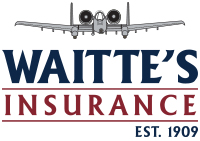 New England residents know how long winters in the region last – and yet, it is still disappointing every year when “spring” rolls around but it’s still too cold to use your boat out on the water, or enjoy other activities outdoors. Thankfully, however, winter has lingered in Connecticut for long enough this year, and fun-filled times in the sun are just over the horizon. If you’re looking forward to using your boat soon, you should keep these important tips in mind for de-winterizing your boat and preparing for boating season.
New England residents know how long winters in the region last – and yet, it is still disappointing every year when “spring” rolls around but it’s still too cold to use your boat out on the water, or enjoy other activities outdoors. Thankfully, however, winter has lingered in Connecticut for long enough this year, and fun-filled times in the sun are just over the horizon. If you’re looking forward to using your boat soon, you should keep these important tips in mind for de-winterizing your boat and preparing for boating season.
1. Check your oil and battery.
Over the winter, long periods of disuse tend to wear down your engine oil and can potentially kill your battery if temperatures dip too low. As a result, make sure to check both of these before you begin boating. Make sure that you change the engine oil and filter, and reattach the cables of your battery, checking that the terminals are not corroded. Above all, make sure that the battery works and hasn’t run out of juice.
2. Take a look at your belts.
Tighten the belts so they fit snugly in the pulley grooves, making sure that they are not too worn and that as a result they don’t slip out. Check for black soot as a sign that the belt is too worn and needs to be replaced.
3. Inspect your fuel and cooling systems.
The cold weather can make fuel hoses brittle and prone to cracking, so it’s important to check this before starting off. Top off your tank with gas and change the fuel filter, making sure that the fuel line is attached and not cracked. You should have drained your cooling system before the really cold weather set in to prevent it from freezing, so you should refill it at this point.
4. Clean your distributor.
Winter can corrode the distributor on your boat, so take the cap off and clean it of any residue. You should also make sure that the connections are restored before you begin boating again for the summer.
Finally, remember to renew your watercraft insurance policy before you hit the open water, so you can feel secure knowing that you are protected in any event that may occur. If you need to review, renew, or purchase a brand new insurance policy for your boat or other watercraft, contact the office of Waitte’s Insurance Agency by email or via phone at (860) 886-1961.

 We see the same story in the news almost on a daily basis now; another traffic accident caused by distracted driving. More specifically, increasing numbers of drivers and passengers are being injured or killed due to someone driving while texting or talking on cell phones. Why is it so difficult for some to put away their cell phones while driving?
We see the same story in the news almost on a daily basis now; another traffic accident caused by distracted driving. More specifically, increasing numbers of drivers and passengers are being injured or killed due to someone driving while texting or talking on cell phones. Why is it so difficult for some to put away their cell phones while driving? Summer vacation is just about here, and the fantastic weather, holiday celebrations and long weekends mean it’s time for some traveling! Whether you’re hitting the road or boarding a plane, there are a few things you can do in advance for a smooth, stress-free vacation.
Summer vacation is just about here, and the fantastic weather, holiday celebrations and long weekends mean it’s time for some traveling! Whether you’re hitting the road or boarding a plane, there are a few things you can do in advance for a smooth, stress-free vacation. The summer season is just kicking off, and it’s the perfect weather for road trips, hopping in the car and heading to a park, or just going on a leisurely, scenic drive. With more people on the roads, the chances are greater that motorists will commit traffic violations of all sorts. There are seven, though, that can be especially serious. These driving infractions in Connecticut are severe enough to not only raise your auto insurance premium but can also carry some hefty legal penalties.
The summer season is just kicking off, and it’s the perfect weather for road trips, hopping in the car and heading to a park, or just going on a leisurely, scenic drive. With more people on the roads, the chances are greater that motorists will commit traffic violations of all sorts. There are seven, though, that can be especially serious. These driving infractions in Connecticut are severe enough to not only raise your auto insurance premium but can also carry some hefty legal penalties. No one expects to be in a car accident, but in the off chance that it does happen you need to be prepared. If you find yourself in this unfortunate situation, the following steps will help you weather the storm with as little distress as possible.
No one expects to be in a car accident, but in the off chance that it does happen you need to be prepared. If you find yourself in this unfortunate situation, the following steps will help you weather the storm with as little distress as possible.
 Buying a home is one of the greatest decisions that you make in your life, which makes buying homeowners insurance equally as important. Having a suitable insurance policy or protection plan for your phone, computer, or other personal items is essential for covering your investment, right? So why wouldn’t you make sure that you got the same out of your homeowner’s insurance?
Buying a home is one of the greatest decisions that you make in your life, which makes buying homeowners insurance equally as important. Having a suitable insurance policy or protection plan for your phone, computer, or other personal items is essential for covering your investment, right? So why wouldn’t you make sure that you got the same out of your homeowner’s insurance? If you live and work in the state of Connecticut, you probably know that you are entitled to file for workers’ compensation if you become ill or injured while on the job and are no longer able to work. The workers’ compensation system in Connecticut provides wage replacement benefits and medical treatment to workers to ensure that they and their families are supported even if their job resulted in their injury or illness. However, what you may not know is that the time you have to file a claim is limited and that in fact, a term called the “Statute of Limitations” applies in workers’ compensation cases.
If you live and work in the state of Connecticut, you probably know that you are entitled to file for workers’ compensation if you become ill or injured while on the job and are no longer able to work. The workers’ compensation system in Connecticut provides wage replacement benefits and medical treatment to workers to ensure that they and their families are supported even if their job resulted in their injury or illness. However, what you may not know is that the time you have to file a claim is limited and that in fact, a term called the “Statute of Limitations” applies in workers’ compensation cases.